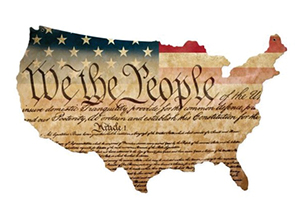Happy Dependence Day – In the USA, the Arts Reflect Our Need for Each Other
The American Dream is built on dependence (Independence Day and elections notwithstanding).
The USA is Blanche DuBois and the “kindness of strangers.” We’re Willy Loman. We’re Fanfare for the Common Man. Revelations. Hamilton. Smoke Signals. Angels in America. Our successes depend and are dependent on the joy, madness, and desires of others.
The monarchy doesn’t choose our art; we do.
American art depends not on individual brilliance, even though there are brilliant individuals. Our best art provides impact.
Mavericks provide almost no impact. Collaborations do.
Patrons deign to “provide for.” Supporters want to “identify with.”
True, there are Americans that call themselves mavericks and patrons. Some folks prefer their terminology shrouded in cobwebs.
But for the rest of us, we know what we are. Even better, we know why. Our best arts nonprofits reflect “We, the People.”
Nonprofit Arts Organizations Without Flexibility Present a Disconnect When It Really Matters
On September 12, 2001, we issued an internal memo at our nonprofit arts organization. We proffered the notion that standing by our programming and “moving forward” was the best way to fight back.
We were wrong. Putting on blinkers never helps.
On June 12, 2016, after one attack in Orlando and a foiled one in Santa Monica – key nonprofit arts organizations are right now readying memos rationalizing the same advice.
Move forward. That’ll show ‘em.
At what tipping point do we scrap activities to reflect the damage inflicted on people? Why must we wait for a year to see the first artistic responses? Why not now? Why worry about the production quality of said response? As nonprofits, when do we sacrifice our comfort zone to provide leadership to our communities for some resolution?
Or should we just move forward? Yet again?
Special 2016 “Alan Harrison’s Birthday” Edition: Pack Up the Babies and Grab the Old Ladies – And an Easy-To-Fulfill Wish List

I was born on May 14. Conceived on a hot August night. Neil Diamond would’ve been proud. He was old enough to have a kid then, so…who knows? Brother Love? Are you my papa?
From him, I want flowers.
From you, I want (this is your cue):
- A 137-word card. ( <–Yes, that’s a link.)
- Share your favorite 137 Words post with your social network (that’s “share,” not “like”).
- To join a great company with a great mission. In Seattle.
- Health for The Kid.
- Guidance for The Kid.
- The love of my life to be happy, fulfilled, and curious. You know who you are.
- The ability for you to guide your favorite nonprofit to safety, security, and success.
- Brilliantly measurable missions, better than you believe you’re capable of.
- Complete, successful execution of those brilliant new missions.
- Pie, not cake.
“See a Need, Fill a Need” (As Long as Your Arts Aren’t the Need)
What’s the biggest societal issue in your personal world?
Americans in April named their list. What’s yours?
Economy, racial injustice, government dissatisfaction, immigration, terrorism. Unsolvable as big issues. Possibly solvable as small ones.
Hunger in your neighborhood? Support the food bank. Find ways for it to thrive so that many can survive without resorting to lawlessness.
Specific racial and income injustice in your town? Support the agencies that convene and expose the problems to the light. Find ways to gather people together who might never otherwise come together – and de-mythologize the stereotypes of the bad [ethnics – fill in your own blank] or the bad [other ethnics] or the bad [government officials], etc.
And do it using your art as a tool.
How?
You now have step A and step Z. Just fill in steps B through Y.
How You Can Solve Diversity With Your Nonprofit Arts Organization!
You can’t.
Arts organizations challenge, reflect, and engage. They don’t solve.
And remember, race is only one small bit of cultural diversity, not all of them. Just as the opposite of love isn’t “hate,” but “indifference;” the opposite of diverse isn’t “white,” but “homogeneous.”
I read a political blog recently about the Democratic Party presidential race. What troubled me were these words:
“What I’m crossing my fingers for is that in ten years or so we’ll get… a young,
charismatic democratic socialist who runs for president. (Preferably this
candidate would be a woman or a non-white person or, ideally, both.)”
Isn’t that parenthetical statement just as intolerant as one where “not” had been inserted after “would?”
Diversity isn’t only about race or gender or any of myriad other categories. It’s about power, shared equally, with specific impact.
April 10, 1957. St. Louis, Mo.
“The clock of destiny is ticking out…. We are not fighting for ourselves alone, we are fighting for this nation…. I just wish this evening that somebody would take a fast plane over to Washington… and say …that the civil rights issue is not some ephemeral, evanescent domestic issue that can be kicked around by reactionary and hypocritical politicians. But it is an eternal moral issue which may well determine the destiny of our nation.… The destiny of our nation is involved. We can’t afford to slow up. The motor is now cranked up. We are moving up the highway of freedom toward the city of equality, and we can’t afford to slow up because our nation has a date with destiny. We’ve got to keep moving. We’ve got to keep moving.”
— Dr. Martin Luther King, Jr.



